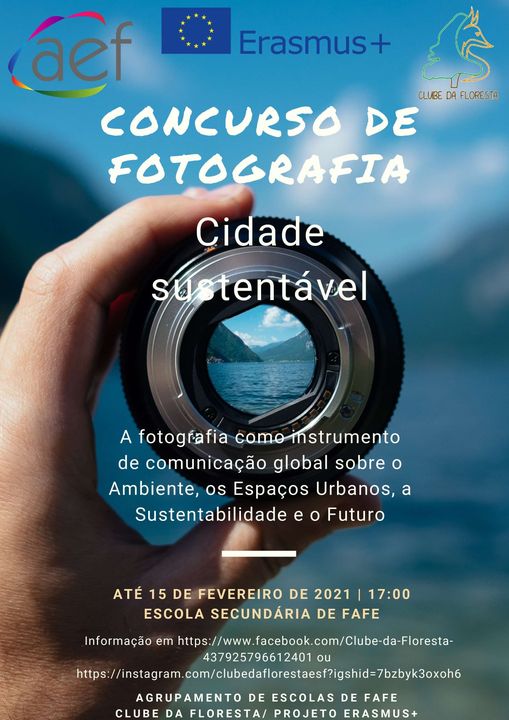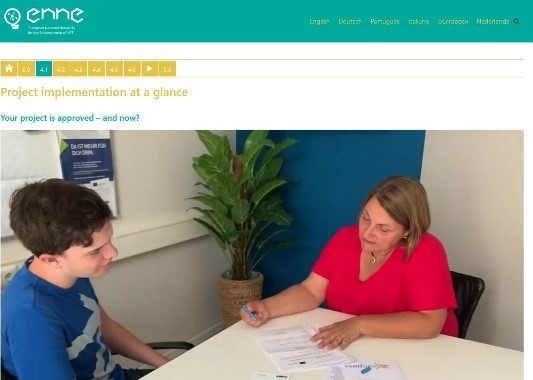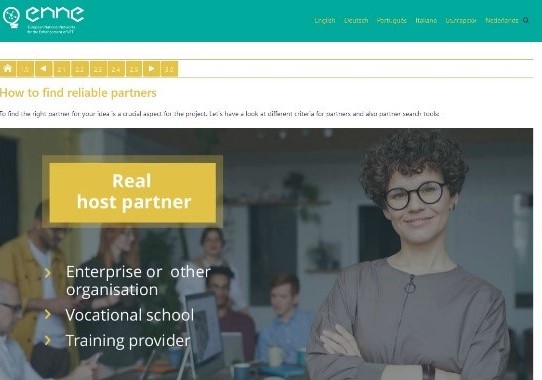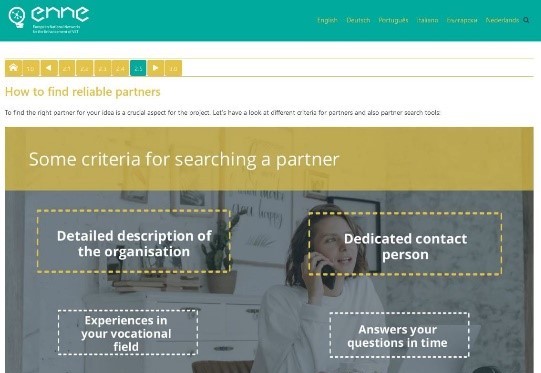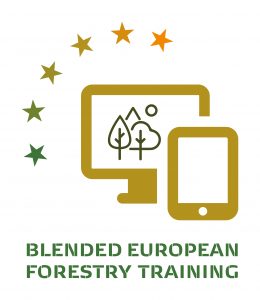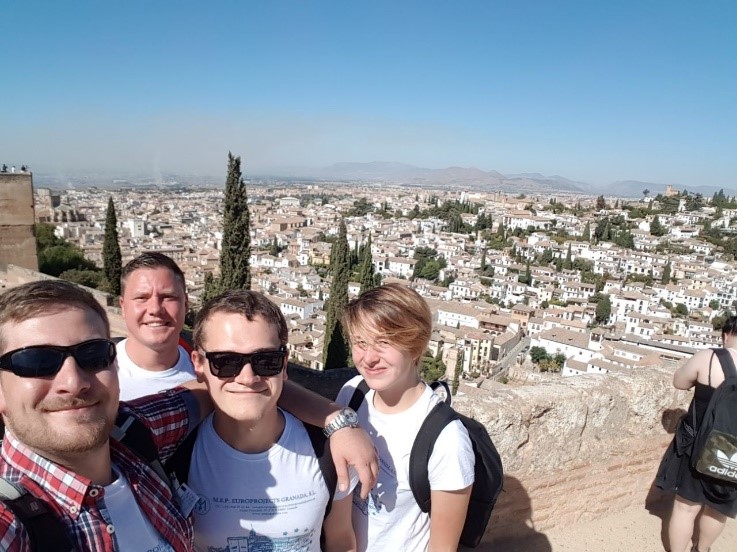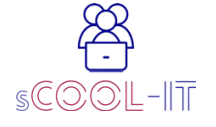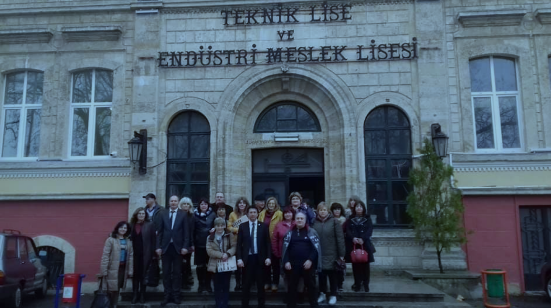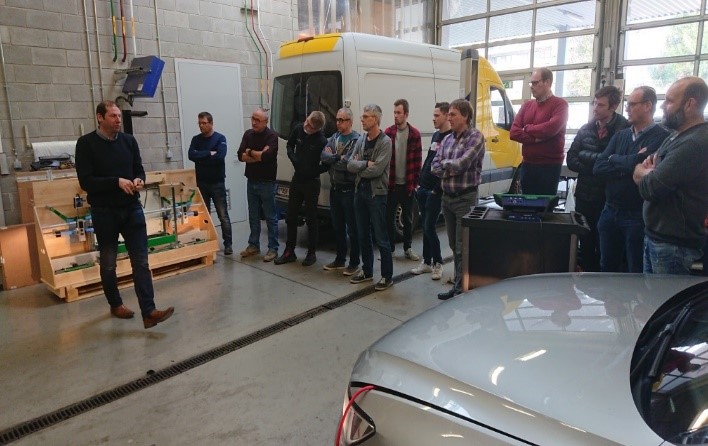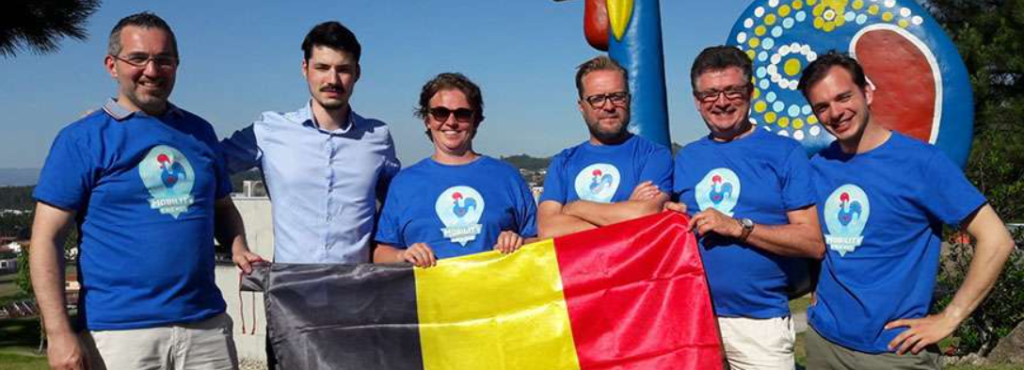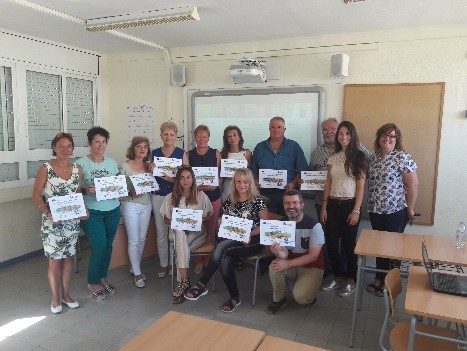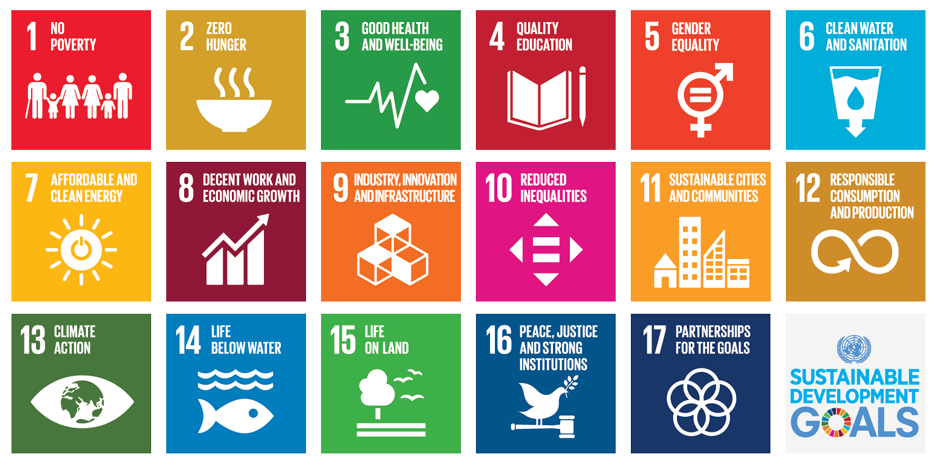Wie ist die Sicht der deutschen Kammern auf die Möglichkeiten von Auslandsaufenthalten in der Berufsbildung? Der deutsche Partner im ENNE-Team, Wisamar, hat nachgefragt.
Was bringt es den Unternehmen Ihrer Meinung nach, Auszubildende und Personal einen Auslandsaufenthalt zu ermöglichen? Welche Unterstützung bieten die zuständigen Kammern dabei? Und welche Möglichkeiten und Notwendigkeiten sehen Sie, Mobilitäten bekannter und attraktiver zu machen? Das sind einige der Fragen, zu denen Wisamar Akteure in deutschen Industrie- und Handels-, Handwerks- und Landwirtschaftskammern befragte.
In Deutschland gibt es heute zwar viele Ausbildungsplätze, jedoch nicht genügend junge Menschen, die diese übernehmen wollen. Kammern und Unternehmen versuchen auf vielerlei Weise, die Attraktivität der Berufsausbildung zu steigern. Eine Möglichkeit sind Auslandspraktika: „Während der Ausbildung einen Auslandsaufenthalt anzubieten“, so der Vertreter einer süddeutschen IHK, „dient als wunderbares Tool zum Azubi-Recruiting“. Ein solches Angebot gehe über das bisher “Normale” hinaus und könne dem Mangel an qualifiziertem Personal entgegenwirken, betont die Vertreterin einer norddeutschen HWK. Es kann genutzt werde, so ihre Kollegin aus dem Nordosten Deutschlands, „um sich als Ausbildungsbetrieb mit dem gewissen Extra zu positionieren“, macht das Unternehmen für junge Talente attraktiver und hilft, auch die qualifizierten Mitarbeiter zu halten. Einige Kammern unterstützen das aktiv und vergeben zum Beispiel Siegel an jene Unternehmen, die ihr Personal ins Ausland schicken oder Auszubildende aus anderen Ländern aufnehmen.
Internationale Positionierung
Viele Unternehmen, auch klein- und mittelständische, wollen sich international stärker positionieren. Sie brauchen, erklärt der Vertreter einer Handwerkskammer im Westen Deutschlands weiter, offene Auszubildende und künftige Angestellte, die auch bereit sind, für eine gewisse Zeit im Ausland zu arbeiten. Andere Unternehmen sehen eine Auslandsmobilität als Zusatzqualifikation für ihre Auszubildenden oder wollen durch ihre Auszubildenden einen Einblick in das Berufsbildungssystem oder die Arbeitspraktiken eines anderen Landes erhalten. Die Gründe der Unternehmen, Mobilitätsmaßnahmen zu unterstützen, sind äußerst vielfältig. Viele Unternehmen, die überzeugt wurden und einmal begonnen haben, ihre Lehrlinge zu entsenden, tun dies auch weiterhin mit zukünftigen Lehrlingen, berichten mehrere Kammervertreter.
Auslandspraktika nutzen: als Motivationsanreize und für praktische Einblicke
Das ideale Unternehmen nimmt einen Auslandsaufenthalt als obligatorische oder fakultative Option in den Ausbildungsplan auf, so die Vertreterin einer IHK im Nordosten Deutschlands. Unternehmen nutzen Mobilitäten zum Beispiel als Anreiz für die Auszubildenden, zum Beispiel wenn die Ergebnisse der Zwischenprüfungen gut sind oder eine positive Entwicklung stattgefunden hat. Die Vertreterin einer westdeutschen Handwerkskammer weitet diesen Gedanken aus: “Genau dieser Aspekt kann auch für Unternehmen von Vorteil sein: die Mitarbeiter durch Auslandsaufenthalte (wieder) zu motivieren.“
Andere Unternehmen haben Tochtergesellschaften, Partner oder Lieferanten in anderen Ländern oder exportieren ihre Produkte dorthin. In diesen Fällen sind die Unternehmen auch sehr daran interessiert, ihre Auszubildenden dorthin zu schicken: Sie kennen die Unternehmen, in denen die Auszubildenden das Praktikum absolvieren werden, und die Umstände. Außerdem haben sie die Sicherheit, dass dieser Praktikumsbetrieb für die Auszubildenden gut geeignet ist. So berichtet die Vertreterin einer IHK im Nordosten Deutschlands von einem Hersteller medizinischer Technologie, der den Lehrling in ein Krankenhaus in Großbritannien schickte, ein Grosskunde der Firma: “Da hat der Lehrling direkt sehen können, wo und wie die Technologie in der Praxis eingesetzt wird.” Ein weiteres gutes Beispiel erzählt eine HWK-Vertreterin: Da hat eine Bäckerei ihr Sortiment um ein deutsch-spanisches Brot erweitert, nachdem der Lehrling zu einem Praktikum in Spanien war.
Doch, so merkt ihre Kollegin einer norddeutschen HWK, nicht alle Unternehmen nutzen das so strategisch und verbreiten diese Möglichkeit nicht genügend, um sich für junge Leute attraktiver zu machen.
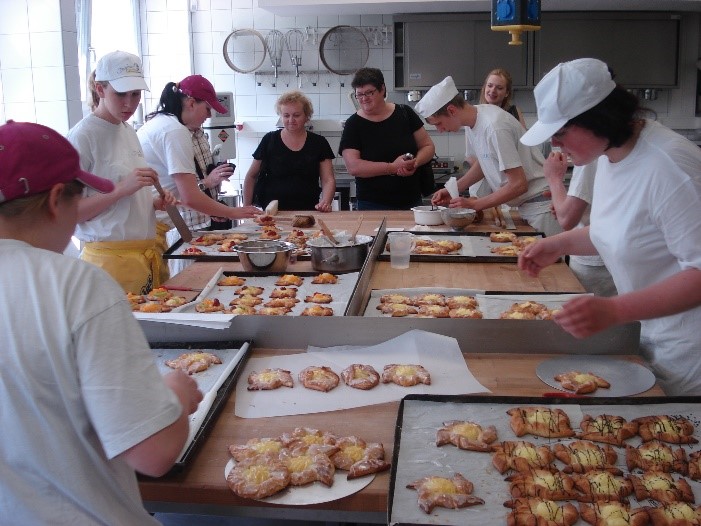
Lernende und Lehrende gemeinsam ins Ausland
Eine gute Praxis, die während der Interviews mehrfach erwähnt wurde, war die Organisation kurzfristiger Mitarbeitermobilitäten während der Auslandsaufenthalte der Azubis. Auf diese Weise erhalten die Lehrer, Ausbilder oder Schulungsleiter der Unternehmen die Möglichkeit, in das Berufsbildungssystem des anderen Landes eingeführt zu werden und zu sehen, wo ihre Schützlinge arbeiten. Sie kommen auch mit anderen Lehrern und Ausbildern in Kontakt und können Themen wie die Motivation der Mitarbeiter oder den Fachkräftemangel diskutieren. Auf diese Weise können sie die verschiedenen Systeme vergleichen und die Gemeinsamkeiten kennen lernen. Nach diesen Personalmobilitäten sind die Unternehmen oft offener, ihre zukünftigen Auszubildenden auch ins Ausland zu entsenden, ausländische Auszubildende im eigenen Unternehmen aufzunehmen oder für Veranstaltungen mit Erfahrungsberichten aus erster Hand zur Verfügung zu stehen.
Forderung: Netzwerke in Europa etablieren
Mehrere der Gesprächspartner verweisen auf das in Deutschland existierende Netzwerk “Berufsbildung ohne Grenzen“, das aus Mobilitätsberatern besteht, die hauptsächlich in Industrie- und Handelskammern und Handwerkskammern angesiedelt sind. Sie beraten und betreuen Berufsschülerinnen und -schüler, Berufsschulen und Unternehmen bei Auslandspraktika. Dabei bieten sie ihre Unterstützung nicht nur im Rahmen des Erasmus+-Programms, sondern auch bei anderen Programmen, wie dem nationalen deutschen Programm “Berufsbildung weltweit”, das Praktika außerhalb der EU unterstützt. Einige der Institutionen, in denen Mobilitätsberater angesiedelt sind, bewerben sich selbstständig um die Finanzierung von Mobilitätsprojekten. Andere sehen ihre Rolle ausschließlich in der Information und Beratung. Die Kammervertreterinnen sind sich einig darüber, dass dieses Netzwerk sehr nützlich und hilfreich ist. Einige halten es für wünschenswert, dass auch in anderen europäischen Ländern ähnliche Strukturen geschaffen werden. Ähnliche Netzwerke mit nationaler Koordinierungsstelle in anderen Ländern wären hilfreich, so der Vertreter einer norddeutschen HWK, um als „Drehscheibe zu vermitteln“ und transparenter zu machen, wer in diesem Land in Sachen Mobilitäten aktiv ist. Seine Kollegin einer westdeutschen HWK bringt es auf den Punkt: „Ein flächendeckendes Netzwerk von Mobilitätsberatern würde viele Prozesse erleichtern. Man hätte gleichermaßen auch Fachpersonal, das sich mit Mobilitäten in der beruflichen Bildung auskennt und diese auf die rechtlichen Gegebenheiten des jeweiligen Ziellandes anwenden kann.“ Die Vertreterin einer norddeutschen HWK geht noch einen Schritt weiter und fordert ein europaweites Netzwerk.
Von Flyern bis zu TV-Spots – Öffentlichkeit herstellen
Was tun die Kammern, um die Möglichkeiten eines Mobilitätsaufenthaltes im Ausland innerhalb der Berufsbildung zu verbreiten? Die Ansätze sind sehr vielfältig. Eine Handwerkskammer im Norden Deutschlands verteilt Flyer an alle angehenden Auszubildenden, für die sie zuständig ist, mit Informationen über die Möglichkeiten eines Auslandsaufenthaltes für ein Praktikum. Diese Informationen umfassen Rechte und Pflichten sowohl für die Auszubildenden als auch für die Unternehmen. Das Unternehmen muss immer zustimmen. Deshalb beginnen andere Kammern mit den Unternehmen, denn auch sie wollen von Anfang an einbezogen werden. Einige haben zum Beispiel Berufsbildungsberater, die regelmäßig die Ausbildungsbetriebe besuchen. Dadurch können sie die Betriebe direkt über die Mobilitätsmöglichkeiten für ihre Auszubildenden oder auch für die Ausbilder informieren. Im deutschen Handwerk bietet sich auch die Information in Meisterschulen und bei Meisterkursen an, denn hier treffen die Kammervertreter direkt auf „die Ausbilder der Zukunft“, wie es ein ostdeutscher HWK-Mitarbeiter benennt.
Darüber hinaus nutzen die Kammern von Pressemitteilungen über unterschiedlichste Veranstaltungen (z.B. Bildungsmessen, Tage der offenen Tür in den Berufsschulen, eigene Informationsveranstaltungen, Innungstreffen, Unternehmerfrühstücke zur Förderung des Austausches, Plenarversammlungen der Kammern, Sitzungen der Prüfungs- und Berufsbildungsausschüsse bei den Kammern usw.) bis hin zu Social Media Kanälen ein breites Spektrum an Verbreitungswegen für die Möglichkeiten der Auslandsaufenthalte. Der Vertreter einer westdeutschen HWK meint, dass die Presse oft interessierter reagiert, wenn sie direkt von einem Unternehmen kontaktiert wird, das einen Auszubildenden ins Ausland geschickt hat. Die konkrete und direkte eigene Erfahrung hält auch der Vertreter einer ostdeutschen HWK für eins der überzeugendsten Argumente: „Es ist wichtig, die als Multiplikatoren einzusetzen, die es selbst erlebt haben, also die Teilnehmer sprechen zu lassen.“
Gefragt nach Ideen, wie Auslandsaufenthalte in der Berufsausbildung noch bekannter gemacht werden können, sprechen sich verschiedene Kammervertreter für breit angelegte Kampagnen aus. So erklärt ein HWK-Mitarbeiterin aus Norddeutschland, dass sie immer wieder auf ganz allgemeine Vorbehalte stößt: Man müsse viel Geld haben, um ins Ausland zu gehen. Das sei nur was für Leute, die super in der Schule sind. Oder auch Erasmus sei ohnehin nur für Studierende. Oder seitens der Unternehmen: „So einen quatsch brauchen wir nicht, warum soll ich den Azubi noch bezahlen für einen Extra-Urlaub?“ Deshalb fordert die Vertreterin einer westdeutschen HWK „groß angelegte Kampagnen – nicht nur speziell für die Zielgruppen, sondern für die Gesamtbevölkerung. Auch die Politik muss besser informiert werden.“ Die Kollegin einer anderen westdeutschen HWK schlägt bundesweite Werbung in TV- und Kino-Spots vor.
